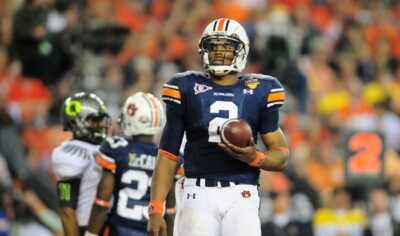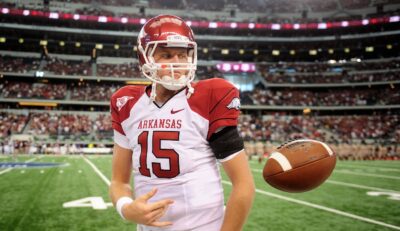Paul Finebaum weighs in on NCAA’s decision to punish Missouri
By SDS Staff
Published:
Everyone, Paul Finebaum included, was blindsided last week when the NCAA dropped the hammer on Missouri’s football program by announcing a one-year postseason ban, recruiting restrictions and three years of probation following a lengthy investigation into academic fraud in Columbia.
What was particularly interesting about Missouri’s case was the fact that the school was so open with the NCAA during the investigation and the fact that transparency seemed to hurt the school in the end. In fact, the NCAA even mentioned that fact as the key difference between the case against Missouri and the controversial 2017 case against North Carolina.
During his latest weekly Monday morning appearance on Birmingham-based WJOX 94.5 FM radio program “The Roundtable,” Finebaum offered up his thoughts on the ordeal.
“You have to cooperate because it is part of the code of the NCAA but I think when it comes down to it, you should only cooperate so much. What I mean by that — the NCAA enforcement staff are really about as dumb as a ton bag of mulch, Finebaum quipped during his appearance on the show. “I mean, these guys could not find their way to the front of a Wal-Mart if you dropped them off.
“And I say that because I’ve watched them in action. They don’t have much ability to do anything on their own and what they primarily do is they take what you give them because they don’t have much in terms of subpoena power. When I was an investigative reporter, they basically followed whatever reports came out and showed up — and even back then they could do a little more but now because of litigation they can’t do anything — so give them the time of day but don’t dare tell them the year or anything beyond that because they will take advantage of it.”
As for the odds of Missouri getting the NCAA to overturn its decision, Finebaum doesn’t feel very optimistic that it will happen.
“I don’t think there’s much the SEC office can do because the SEC office is usually — I don’t know specifically this case — but usually around when the school goes in front of the Committee on Infractions,” Finebaum said. “That’s how it works and I’ve seen it many, many times. Often the commissioner will go with them. The appellate process is extremely difficult.
“I had Jay Bilas on the other day and he explained it better than I could but I’ll try to regurgitate what he said, he said to turn something over on appeal, you have to find blatant error in their decision and that is very narrow in terms of looking at what a group of people have done, that do this all the time, and find something where they errored in their interpretation or their process and I don’t think Missouri can do it.”
Fair or not, Missouri will likely have to face the punishment following the actions of a single tutor, and possibly more importantly, being open and honest with the NCAA in the aftermath of academic misconduct.
Saturday Down South reports and comments on the news around the Southeastern Conference as well as larger college football topics.







